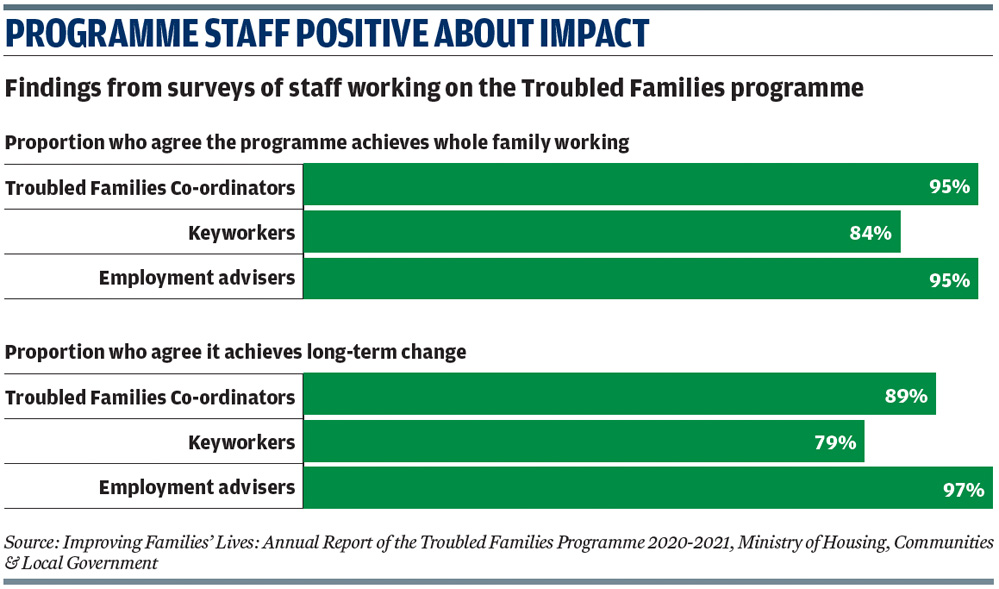
The programme aims to tackle the needs of a whole family, addressing problems such as domestic abuse, mental health problems and debt. The government said funding – £165m a year – and the delivery structure of the programme will remain the same in 2021/22, which will be used as a transition year to co-design and test future improvements to the programme with local partners.
Workforce
Families are assigned a dedicated keyworker, who works with every member of the family and brings local services together to resolve issues at an early stage. Keyworkers most commonly help with parenting skills, mental health support and with getting children to school. Most keyworkers – 84 per cent – are employed by councils. According to a 2021 evaluation of the programme, 63 per cent of keyworkers have an NVQ 4+ or equivalent while 28 per cent have a NVQ 1-3 or equivalent. Seven in 10 – 71 per cent – have more than five years’ experience of working with families with complex needs.

Supporting Families Co-ordinators co-ordinate the work of the programme in a local area. They are mostly educated to NVQ 4 or degree level, or higher. The majority of Supporting Families Co-ordinators – 97 per cent – are employed by councils.
Specialist Supporting Families Employment Advisers are employed by the Department for Work and Pensions/Jobcentre Plus and seconded into specialist roles, working closely with others in the early help system to support families on the programme. Around three in 10 – 31 per cent – hold at least a degree or equivalent as their highest qualification while 43 per cent have an A level or equivalent. The most common route into the role is by working as a work coach or employment adviser, a lone parent adviser or an 18- to 24-year-old work coach.
Data analysts in councils provide data analysis to support and underpin the programme’s delivery.
Some local authorities have invested in “link workers” to connect different services, such as Jobcentre Plus employment and welfare services and local authority family support. The government says it will continue to fund and champion innovation nationally, exploring the benefit of similar link worker roles. “We have now funded five local areas to test methods for increasing whole family working amongst housing partners,” says a spokesperson from the Ministry of Housing, Communities & Local Government.
Training
As the programme continues in 2021/22, the national team has seconded Supporting Families employees from local areas to improve joined-up working, help develop the early help system, and enhance data sharing and use of analytics. The national team runs regular webinars on key issues related to programme delivery, and wider family policy and practice matters. The team also delivers regular “surgeries”, workshops and focus groups, including a national Digital Showcase for data leads this year.

